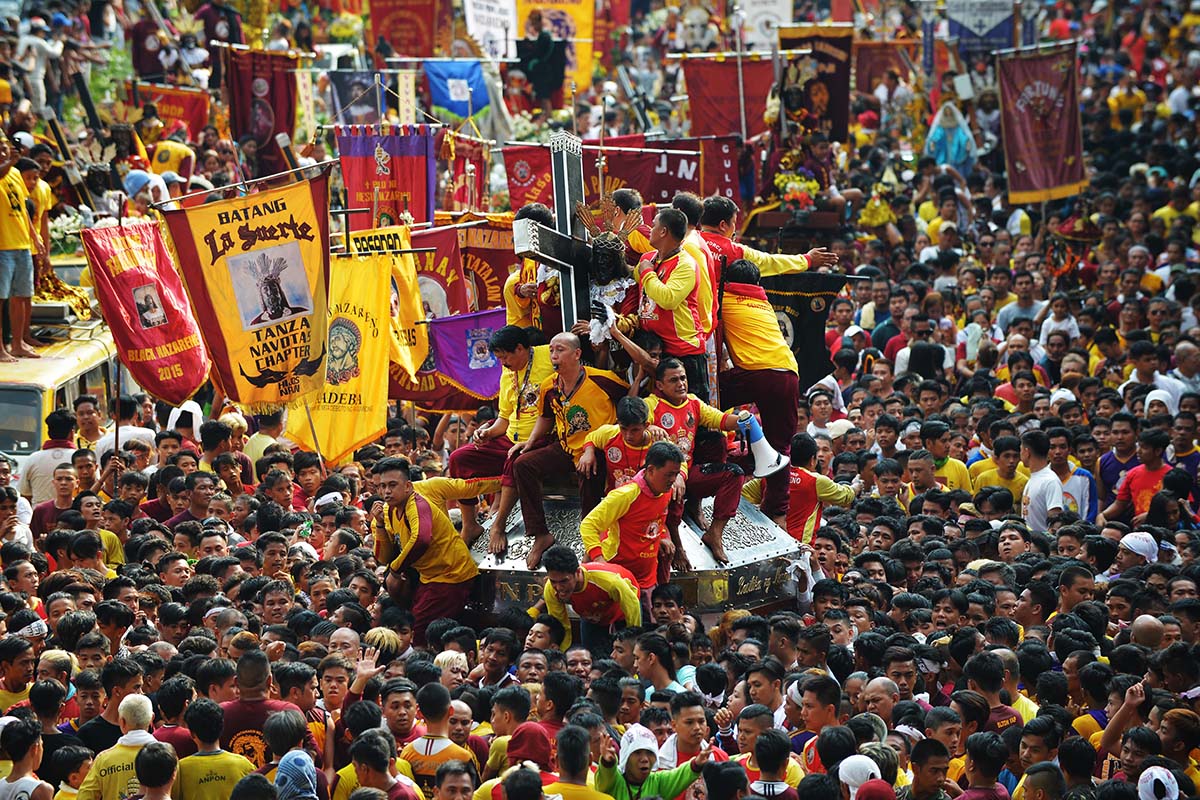A sea of heaving, towel-waving humanity swarmed a black statue of a cross-bearing Jesus Christ in the Philippine capital Tuesday as the Catholic faithful joined one of the nation's largest religious festivals.
In a frenzied display of religious fervour, men, women and children climbed over heads and shoulders and flung themselves at the centuries-old Black Nazarene that they say performs miracles.
Devotees pulled on stout ropes to move the carriage forward as the procession drew more than half a million people wearing maroon and yellow shirts and waving towels while chanting "Viva" ("Long live"), Manila police said.
The statue was passing through streets of old Manila lined with bystanders on Tuesday afternoon en route to its home in the Quiapo church in a lengthy parade that usually takes 20 hours or more.
"It is really tough climbing to get to the Nazarene. I get squished, and people step on my face. But I have a devotion," Honey Pescante, a 24-year-old housewife from Bataan province, told AFP.
The Philippines is Asia's Catholic bastion with a flock of more than 80 million. Spain colonised the archipelago in the 16th century and spread the faith.
The wooden Black Nazarene was brought to Manila by missionaries in 1606 and is believed to have survived calamities.
A devotee for 30 years, 61-year-old Julio Castillo watched from the sidelines of the procession Tuesday after both his feet were fractured in a motorcycle accident last month, leaving him in a wheelchair.
'Test of faith'
"I came here because this is my devotion. I hope my family will have good health and a prosperous life, that we will have no illness and I will heal," he said.
More than 700 people were injured in Tuesday's procession, one of them with a suspected cracked spine in a fall while attempting to climb onto the carriage, the Philippine Red Cross said.
Pilgrims risk life and limb to touch the icon with towels believing the Black Nazarene has miraculous powers that will be transferred to the cloth. In 2016, two participants were killed.
The near-suicidal displays of devotion have drawn frequent criticism in the Philippines, with some saying it resembles pagan worship.
But sociologists say many devotees regard the event as a test of faith.
"Filipino Catholicism follows the belief that the presence of a higher being can only be made real through the body and via the material," Maria Yohana Frias, an ethnology researcher at the National Museum of the Philippines, told AFP.
"Enduring a challenging procession where devotees walk barefoot is also seen as a test of faith for some."
This year's procession came as the Catholic church voiced criticism to the killing of thousands of people under President Rodrigo Duterte's drug war.
Nearly 4,000 suspects have been killed by security forces less than two years into Duterte's rule, according to government figures, while thousands more have died under mysterious circumstances.
However, surveys have shown popular support for the drug war despite criticism from rights groups. – AFP
Recommended stories:
